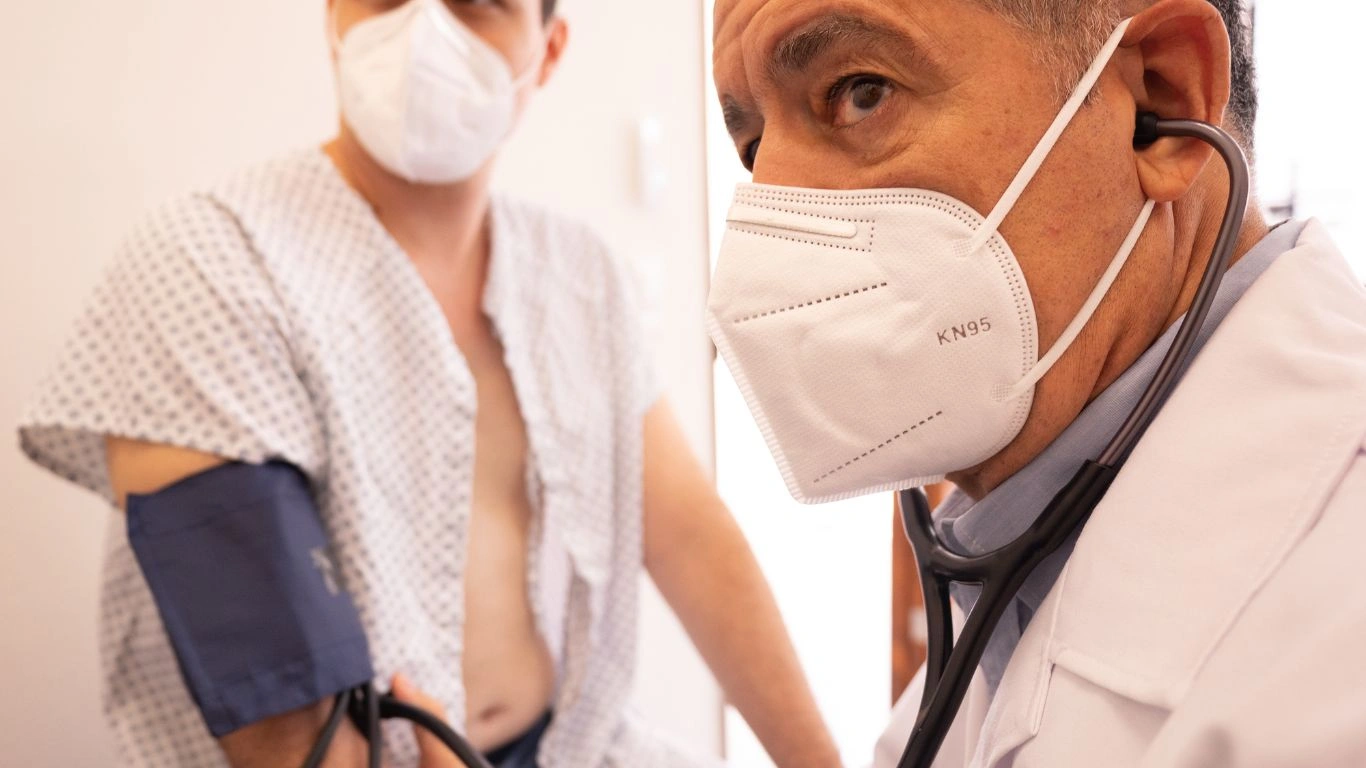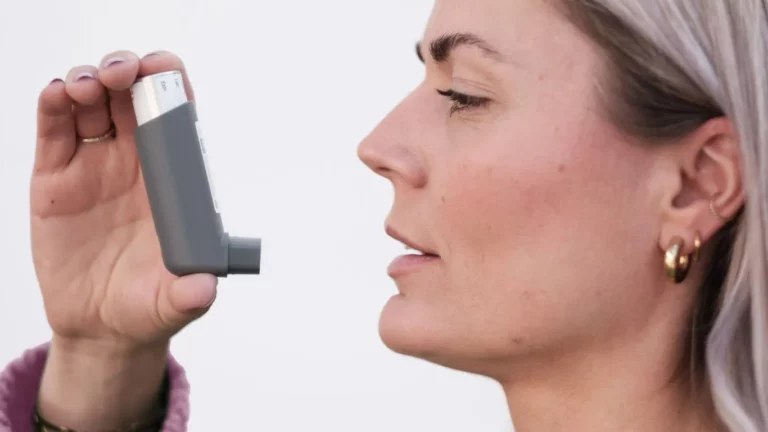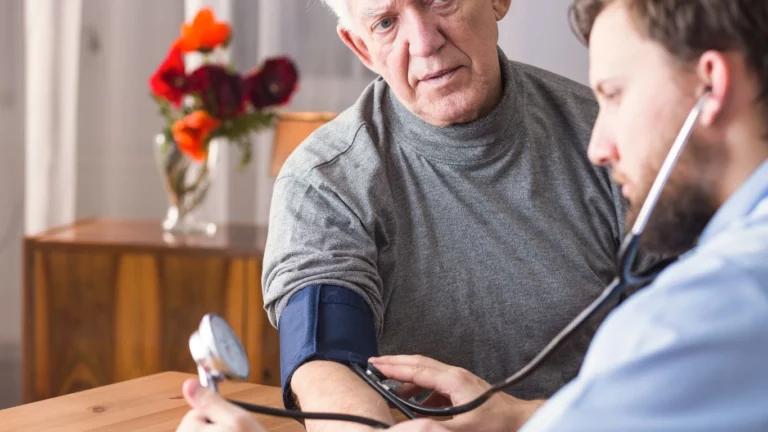Skipping Meals May Spike Your Blood Pressure: What You Should Know
Can skipping meals raise blood pressure? That’s a question I’ve heard more than a few times in clinic — especially from patients who are trying to “be healthier” or “cut back.” As an Internal Medicine Physician focusing on hypertension management, I’ve seen firsthand how unpredictable blood pressure can be when the body’s rhythm gets thrown off. A lot of people assume high blood pressure only comes from salty food, stress, or genetics — but irregular eating patterns? Those can be a sneaky trigger too. Let’s talk about what’s really going on when you skip a meal, and why your blood pressure might not be too happy about it.
How Skipping Meals Impacts Blood Pressure
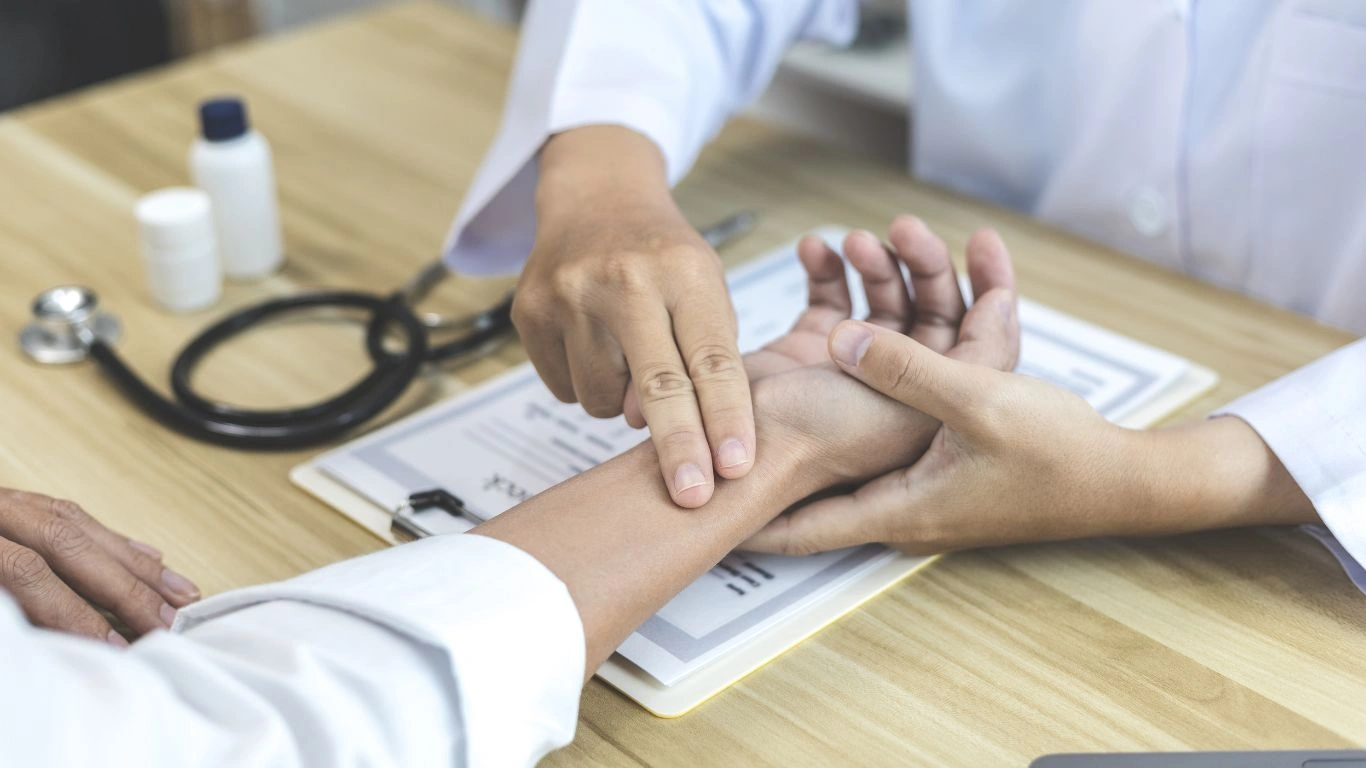
Blood Pressure Isn’t Just About Salt and Stress
When patients come in with spikes in blood pressure, most of them are quick to blame a salty dinner or a hectic workday. And sure, those things absolutely matter. But over the years, I’ve noticed a pattern: some folks who skip meals — especially breakfast — start seeing more erratic BP readings.
Why? Well, your body likes consistency. When you go hours without eating, your blood sugar can drop. In response, your body might release stress hormones like adrenaline and cortisol to keep you functioning. That hormonal surge? Yep, it can cause your blood vessels to constrict, raising your blood pressure temporarily. If this becomes a habit, the fluctuations start piling up.
Physiological Response to Meal Skipping
Here’s the thing: when you skip meals, especially repeatedly, your sympathetic nervous system kicks into gear. This is your body’s built-in “fight or flight” mode. It’s not meant to be running 24/7 — but meal skipping can nudge it into overdrive. This means:
- Increased heart rate
- Vasoconstriction (narrowing of blood vessels)
- Spikes in blood pressure, particularly systolic readings
In fact, I had a patient — let’s call her Maria — who was meticulously following a DASH-style diet, walking daily, and still seeing blood pressure in the 150s. Turns out, she was skipping lunch almost every day because of back-to-back meetings. Once we added a protein-rich snack mid-day, her readings dropped like magic.
Why Your Body Reacts So Strongly to Skipping Meals
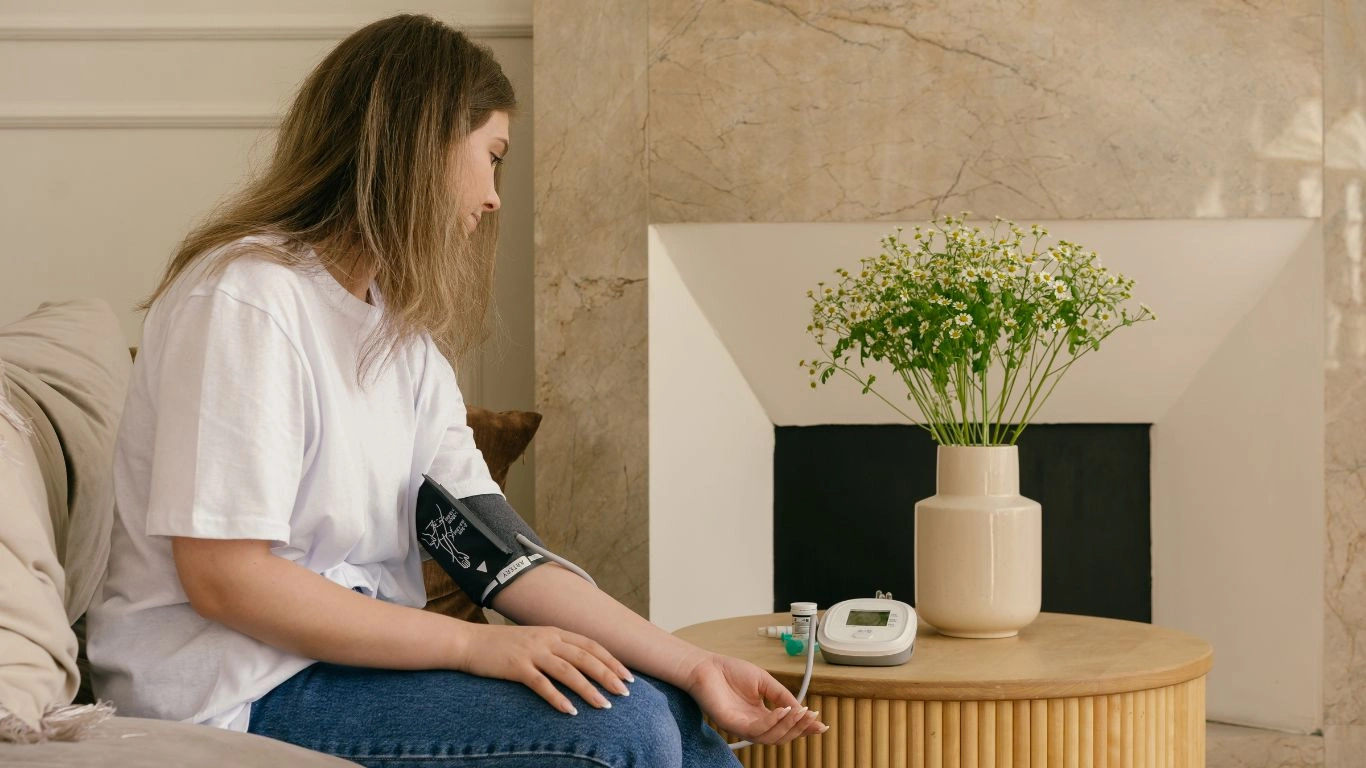
It’s Not Just About Hunger — It’s About Homeostasis
Your body is always working behind the scenes to maintain balance — or homeostasis. Skipping meals messes with that. When you deprive your system of fuel, your brain signals your adrenal glands to release hormones to compensate. This includes:
- Adrenaline: Which increases heart rate and blood pressure.
- Cortisol: Which makes your body retain sodium and water, both of which increase BP.
This chain reaction is especially pronounced in people who already have hypertension or are borderline. Even intermittent fasting (which has some health benefits) can backfire if it’s not done carefully or if hydration and electrolytes aren’t well-managed.
The Role of Insulin and Blood Sugar Swings
Another piece of the puzzle? Insulin fluctuations. After you skip a meal, your insulin levels drop — but when you finally eat, your body might overcompensate, releasing too much insulin. This rollercoaster can lead to low blood sugar followed by reactive highs. Both extremes can spike your sympathetic nervous system, again raising your blood pressure. It’s like a domino effect — and not in a good way.
Personally, I always recommend my hypertensive patients (especially those with type 2 diabetes or insulin resistance) avoid extreme fasting unless closely monitored. Controlled eating windows and balanced nutrition help regulate these swings far better than erratic meal habits.
Who’s Most at Risk from Skipping Meals?
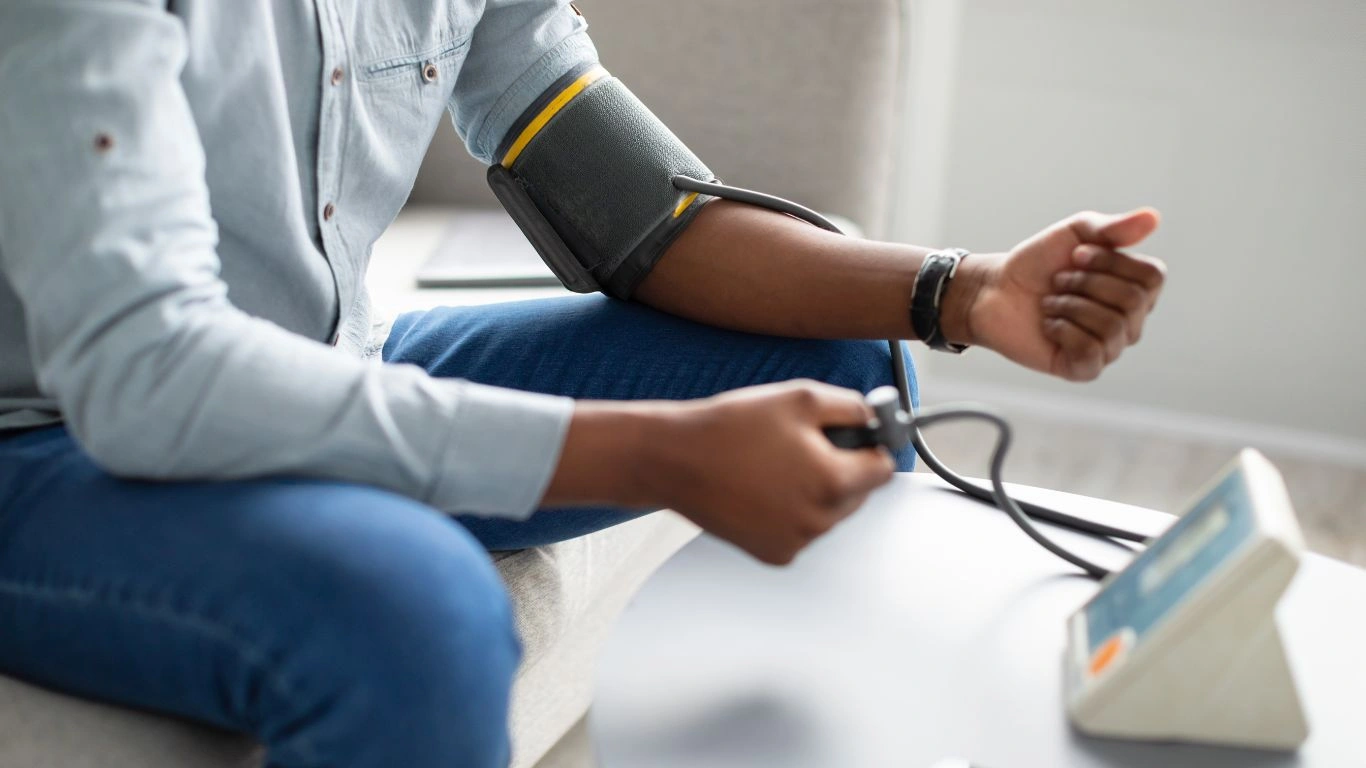
People with Pre-Existing Hypertension
If your blood pressure is already a concern, skipping meals can act like fuel on the fire. You’re more likely to experience:
- Mid-day or early evening BP spikes
- More variability between readings
- Symptoms like dizziness, headaches, or fatigue
Women in Midlife
I’ve seen this especially in women in their 40s and 50s — juggling careers, kids, aging parents — and forgetting to eat or skipping meals thinking it’ll help with weight management. Hormonal shifts during perimenopause already mess with BP regulation. Add skipped meals to the mix? Blood pressure chaos.
Patients on Antihypertensive Meds
One thing that surprises many people is how timing and food intake affect their medications. Certain blood pressure meds (like beta-blockers or ACE inhibitors) can have more pronounced effects on an empty stomach — potentially leading to dizzy spells or BP drops that then rebound. Food helps buffer those effects and keeps levels steadier.
How Skipping Meals Affects Your Daily Blood Pressure Pattern
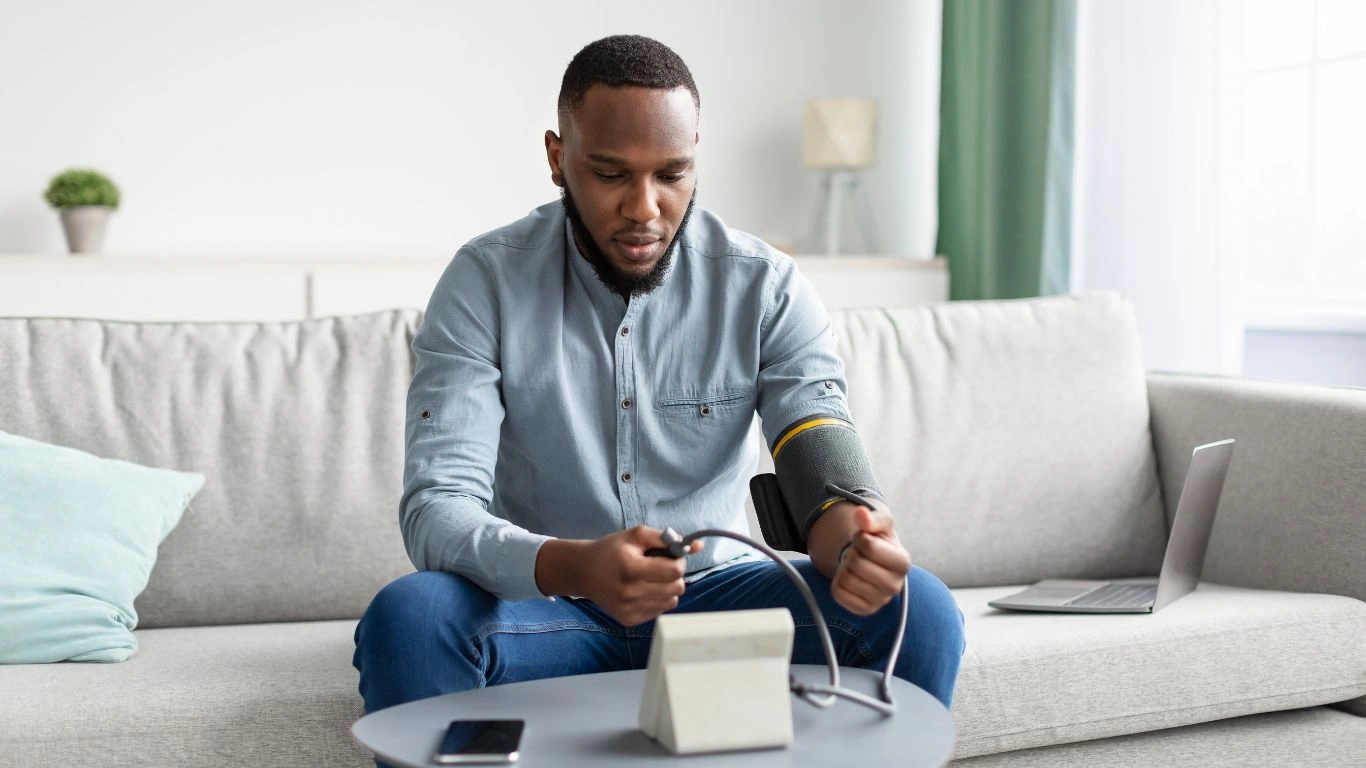
Morning Dips and Evening Spikes
Here’s a little behind-the-scenes from the clinic — I’ll often ask patients to bring in home BP logs, and what I’ve noticed is this recurring trend: when meals are missed or delayed, especially earlier in the day, we tend to see lower-than-usual readings in the morning… and then surprising spikes in the afternoon or early evening. It’s like the body tries to “catch up,” and that compensatory rise throws everything out of whack.
One patient, John — an early riser and an overachiever in every sense — kept skipping breakfast and powering through till noon with nothing but coffee. His morning pressures looked fantastic, but by 5 p.m., he was getting systolic readings in the 160s. We added a mid-morning smoothie with protein and fiber, and boom — pressure stabilized throughout the day. Sometimes it’s the little things that change the game.
Dehydration Plays a Sneaky Role Too
It’s not just the food you’re skipping — it’s often hydration too. A lot of us don’t drink water when we’re not eating, and mild dehydration can subtly raise blood pressure. Especially when paired with coffee, which is a diuretic, or long stretches without fluids, your body holds on to sodium and constricts blood vessels — again, nudging BP higher.
In fact, one of my simplest but most effective suggestions to patients who report BP spikes mid-day: carry a water bottle. Sounds too basic, right? But honestly, some people are chronically under-hydrated and don’t even realize it.
Can Skipping Meals Raise Blood Pressure in the Long Run?
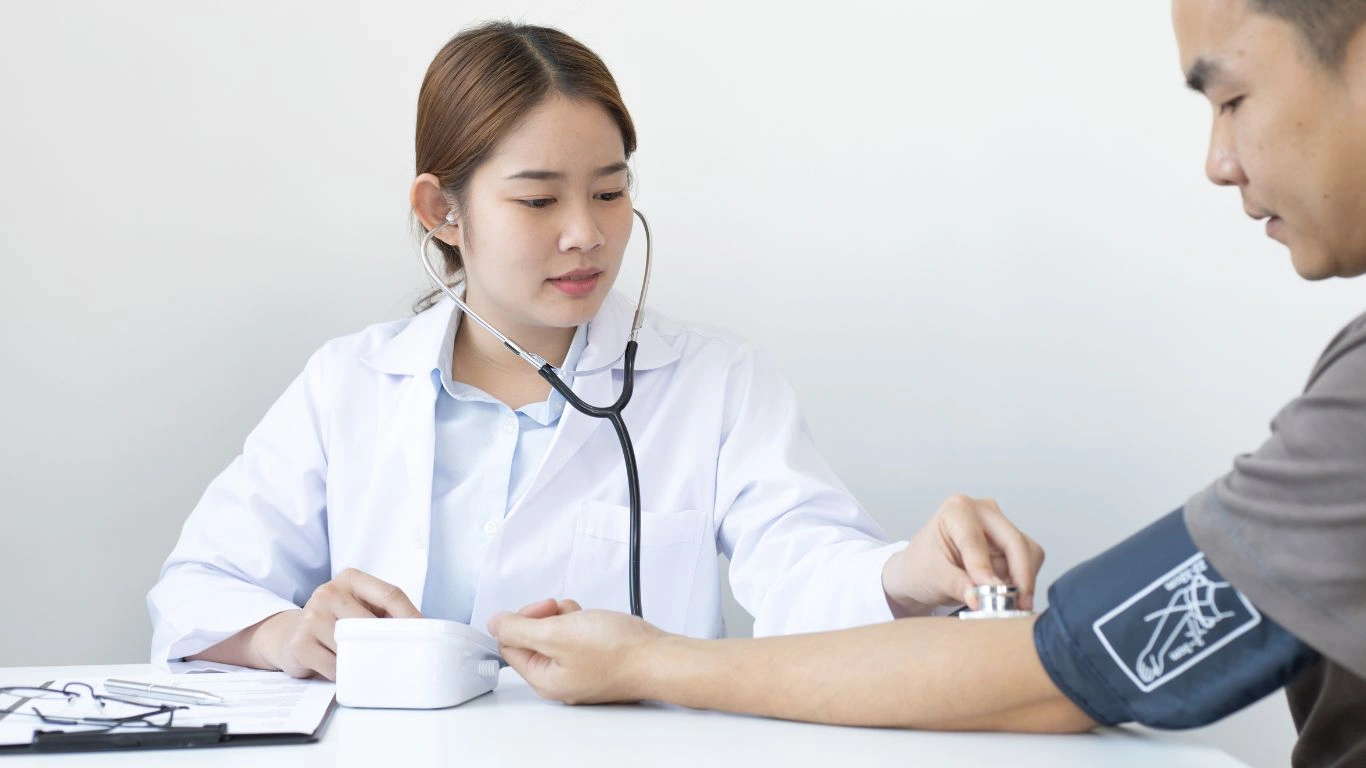
Chronic Stress, Cortisol, and the Blood Pressure Connection
We touched on this earlier, but let’s dig a little deeper. Skipping meals isn’t just a one-off stressor — it builds a pattern. Over time, repeated spikes in cortisol (thanks to ongoing meal deprivation) can start messing with your entire cardiovascular system. Cortisol tells your kidneys to hold onto sodium, which increases fluid retention and drives blood pressure up.
It’s this slow-burn effect that a lot of folks underestimate. They’ll say, “But I only skip lunch once in a while!” But if “once in a while” turns into “most weekdays,” it becomes part of your body’s rhythm — and not in a good way.
The Gut-Blood Pressure Axis (Yes, It’s a Thing!)
Here’s something fascinating: emerging research is now showing how gut health directly influences blood pressure. When you skip meals regularly, your gut microbiota can shift. Some beneficial bacteria thrive on fiber and regular meals, and when that consistency disappears, the balance tips.
What does that have to do with BP? Well, gut microbes help regulate inflammation, insulin sensitivity, and even how your blood vessels behave. Disruption here can lead to low-grade inflammation and endothelial dysfunction, both of which are tied to hypertension. Wild, right?
What to Eat (and When) to Keep Your BP in Check

Small, Balanced Meals Win Every Time
If you’re someone who’s busy (and let’s be honest — who isn’t?), the idea of sitting down for three perfect meals a day might feel laughable. But it doesn’t have to be complicated. I tell my patients all the time: something is better than nothing — as long as it includes a mix of protein, healthy fats, and fiber.
- Examples of BP-friendly grab-and-go meals:
- A boiled egg, a handful of almonds, and a piece of fruit
- Greek yogurt with chia seeds and berries
- Whole grain wrap with hummus and sliced veggies
What you want to avoid is the “feast or famine” cycle. That’s where skipping meals really does a number on your system — your blood sugar tanks, you get cranky and tired, and then you overeat, sending your blood pressure on a rollercoaster.
Don’t Skip Breakfast (Seriously!)
I know breakfast can feel overrated — but from a metabolic and BP standpoint, it’s incredibly protective. Studies have shown that people who eat a nutritious breakfast tend to have lower blood pressure throughout the day. And no, a sugary donut or flavored coffee doesn’t count.
One of my go-to recommendations is a slice of whole grain toast with avocado and a poached egg, or oatmeal with ground flaxseed and a few walnuts. Doesn’t have to be gourmet — just consistent and balanced.
- Don’t wait more than 5-6 hours between meals. This helps prevent cortisol and insulin spikes.
- If you’re doing intermittent fasting, hydrate aggressively and avoid super-low-carb meals that can mess with your electrolyte balance.
- Never take BP meds on an empty stomach unless advised. It can lead to dizziness or poor absorption.
At the end of the day, meal timing matters just as much as what’s on your plate. And when it comes to managing blood pressure naturally, small habits add up — in a big way.
Monitoring Blood Pressure When You Have Irregular Eating Patterns

Don’t Just Rely on One-Off Readings
If you’ve ever taken your blood pressure after a long workday, post-skipped-lunch, while feeling hangry and stressed — and it read high — don’t panic. That’s not necessarily your “true” baseline. Blood pressure can fluctuate throughout the day based on so many variables: food, hydration, stress, even how well you slept the night before.
What I usually recommend to my patients is to track their BP at home, ideally twice a day, at the same time, in a calm setting. First thing in the morning and again before dinner tends to work well. Consistency is key. And if you’re skipping meals regularly and seeing erratic readings, that’s a clue your eating pattern might be affecting your numbers.
How to Know If Food Timing Is Impacting Your BP
Here’s a little self-check you can do at home — I call it the “pressure pattern tracker.”
- Take your BP before a meal (say, breakfast) and again 2 hours after.
- On a day you skip that meal, do the same readings at the same time.
- Compare the patterns over a few days. If your post-skip readings are consistently higher, there’s your sign.
Some of my more tech-savvy patients like to track this using BP monitor apps that sync with their phone. But honestly, even a pen-and-paper log can tell you a lot if you use it consistently for a week.
Tips for Creating a Meal Schedule That Supports Healthy BP

Real Life, Real Food, Realistic Habits
One of the biggest things I emphasize in clinic is this: it’s not about perfection, it’s about consistency. You don’t have to eat like a wellness influencer to support your blood pressure. What matters most is not skipping meals, especially if you’re already managing hypertension.
Here’s a quick cheat sheet I give my patients when we’re building out meal timing strategies:
- Breakfast: Within 90 minutes of waking up (even if it’s small)
- Lunch: No later than 1–2 p.m. (try not to push past 6 hours after breakfast)
- Dinner: Around 6–7 p.m. (but not too close to bedtime)
- Snacks: Optional, but helpful mid-morning or afternoon if meals are lighter
Meal Prepping for BP Stability (Even If You’re Not a “Meal Prep” Person)
Trust me, I get it — not everyone loves the idea of containers stacked in their fridge. But meal prepping doesn’t have to mean 2 hours on Sunday with a kitchen full of Tupperware. It can be as simple as batch-cooking quinoa, chopping veggies ahead of time, or keeping pre-portioned nuts in your bag. I tell my busier patients: prep what gives you the most friction during the week. That’s where the BP wins come from.
Some simple BP-friendly prep ideas:
- Boil a dozen eggs — breakfast and snack ready to go
- Pre-cut veggies and store with hummus or low-sodium dip
- Batch cook lentils or chickpeas for salads or wraps
Hydration Reminders That Actually Work
We touched on this in Part 2, but it’s worth repeating — especially if you’re a meal skipper. When you’re not eating, you often forget to drink, too. I’ve found success with patients using hydration alarms on their phones, or apps like Plant Nanny that gamify water intake. One woman I worked with kept a post-it on her steering wheel that just said “DRINK” — simple but effective.
Can Skipping Meals Raise Blood Pressure? Bottom Line from a Physician’s Chair
Here’s What I Tell My Own Patients
If you’ve been dealing with high blood pressure and your medication, exercise, and stress management are all dialed in — but your numbers are still bouncing around — you have to look at your eating habits. Skipping meals can sneakily drive blood pressure up in both the short-term and long-term, especially through cortisol surges, dehydration, and poor blood sugar regulation.
And while intermittent fasting gets a lot of buzz, it’s not for everyone. In fact, many people who try it do it in a way that creates more BP chaos than benefit. If you want to try fasting or have irregular eating due to work or lifestyle, it’s worth talking to a physician (yes, even just a quick consult!) to make sure your body — and your blood pressure — can handle it.
When to Talk to Your Doctor
If you’re noticing dizziness, headaches, flushed skin, fatigue, or weird swings in your BP readings (especially after skipped meals), don’t tough it out — that’s your body’s way of waving a red flag. You deserve a treatment plan that works with your life, not against it. And yes, that includes making space for real meals, even on the busiest days.
References
Disclaimer
This article is for informational purposes only and does not substitute medical advice. Always consult with a licensed healthcare professional regarding any questions or concerns you may have about your blood pressure, medications, or dietary habits.

Dr. Gwenna Aazee is a board-certified Internal Medicine Physician with a special focus on hypertension management, chronic disease prevention, and patient education. With years of experience in both clinical practice and medical writing, she’s passionate about turning evidence-based medicine into accessible, actionable advice. Through her work at Healthusias.com, Dr. Aazee empowers readers to take charge of their health with confidence and clarity. Off the clock, she enjoys deep dives into nutrition research, long walks with her rescue pup, and simplifying medical jargon one article at a time.

